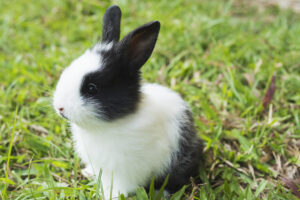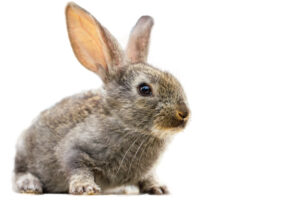
Rabbits are endearing and social creatures, beloved for their soft fur, gentle nature, and expressive personalities. Pet rabbits make wonderful companions for individuals and families alike. Their gentle temperament, soft fur, and playful nature endear them to people of all ages. Whether they’re lounging contentedly in their hutch or bounding around a rabbit-proofed room, pet rabbits bring joy and companionship to their owners. Providing a spacious and secure living environment, a balanced diet rich in hay and fresh vegetables, regular veterinary care, and plenty of love and attention are essential for keeping pet rabbits happy and healthy. With proper care and commitment, pet rabbits can form deep bonds with their human companions, enriching their lives with their unique personalities and affectionate demeanor. We are here to give you Rabbit Adoption And Care Tips.
If you want to pet a rabbit you should probably adopt a rabbit , instead of buying. You can adopt a rabbit from
1. Animal Shelters and Rescues: Local animal shelters often have rabbits available for adoption. Additionally, there are rescues and organizations dedicated to rabbits specifically. These shelters and rescues provide care and rehabilitation for rabbits in need of homes.
2. Local Classifieds and Community Groups: Check local classified ads, community bulletin boards, and online community groups on social media platforms. Sometimes, individuals may need to rehome their rabbits due to various reasons.
Before adopting a rabbit, it’s essential to consider the commitment involved in caring for them and ensure that you can provide a suitable environment and meet their needs. Additionally, consider adopting from reputable sources that prior
itize the welfare of the rabbits and provide proper veterinary care and socialization.
Best ways to care and groom your pet rabbit :
Caring for a rabbit involves creating a suitable environment that meets their physical, social, and emotional needs. The first step is providing adequate housing, which should be spacious enough to allow the rabbit to hop, stretch, and exercise freely. A large indoor cage or an enclosed area with room to move around is ideal, supplemented with time outside the cage for supervised play and exploration.

The environment should be rabbit-proofed to prevent accidents and injuries. This includes removing potential hazards such as electrical cords, toxic plants, and small objects that the rabbit could ingest. Providing a variety of toys and chew items helps keep rabbits mentally stimulated and prevents boredom.
A healthy diet is crucial for rabbits, with the majority of their food consisting of high-quality hay, such as timothy or orchard grass. Fresh vegetables, such as leafy greens and root vegetables, should also be offered daily, along with a small portion of rabbit pellets to ensure they receive essential nutrients. Clean, fresh water should always be available.
Socialization is another important aspect of rabbit care. Rabbits are social animals and benefit from companionship, whether from other rabbits or from spending time with their human caregivers. Providing opportunities for interaction, such as gentle handling and
playtime, helps build trust and strengthen the bond between rabbits and their owners.
Regular grooming is essential to keep rabbits clean and comfortable. This includes brushing their fur to remove loose hair and prevent matting, as well as trimming their nails every few weeks to prevent overgrowth and potential injury.
How to keep your pet rabbits neat and clean?
Keeping a rabbit neat and clean involves regular grooming and maintaining a clean living environment. Here are some tips to help you keep your rabbit tidy:
Brushing: Regular brushing helps remove loose fur, dirt, and debris from your rabbit’s coat, preventing mats and reducing shedding. Use a soft-bristled brush or a grooming mitt designed for rabbits, and brush your rabbit gently in the direction of their fur growth.
Nail Trimming: Trim your rabbit’s nails every 4-6 weeks to prevent them from becoming overgrown and causing discomfort or injury. Use pet nail clippers designed for small animals and be cautious not to cut the quick, which is the blood vessel inside the nail.
Cleaning the Living Space: Keep your rabbit’s living space clean by spot-cleaning soiled areas daily and doing a thorough cleaning of the entire enclosure on a weekly basis. Remove soiled bedding, uneaten food, and droppings regularly to maintain hygiene.
Bathing: Most rabbits do not require baths as they groom themselves regularly. However, if your rabbit gets dirty, you can spot-clean them with a damp cloth or use a pet-safe waterless shampoo formulated for rabbits. Avoid bathing your rabbit in water unless necessary, as it can be stressful for them and disrupt their natural oils.
Checking Ears and Eyes: Regularly check your rabbit’s ears and eyes for any signs of discharge, irritation, or infection. If you notice any abnormalities, consult with a veterinarian for proper diagnosis and treatment.
Regular Vet Check-ups: Schedule annual wellness exams with a veterinarian who specializes in exotic pets to monitor your rabbit’s overall health and address any concerns promptly.
Nutritious Foods for Pet Rabbits
Feeding your pet rabbit a well-balanced diet is essential for their health and well-being. Here are some important and nutritious food items you can provide them:
Hay: High-quality grass hay, such as timothy, orchard grass, or brome, should form the majority of your rabbit’s diet. Hay provides essential fiber, which is crucial for digestive health and helps wear down their teeth.
Fresh Vegetables: Offer a variety of fresh vegetables daily, such as dark leafy greens (e.g., romaine lettuce, kale, spinach), herbs (e.g., parsley, cilantro), and other vegetables (e.g., carrots, bell peppers, broccoli). Introduce new vegetables gradually to avoid upsetting your rabbit’s stomach.
Limited Fruits: Treat fruits as occasional snacks due to their high sugar content. Suitable fruits for rabbits include apples (remove seeds), strawberries, blueberries, and raspberries. Feed fruits in small portions to prevent obesity and digestive issues.
Avoid: Limit or avoid feeding your rabbit foods high in starch or sugar, such as bread, crackers, cereals, and commercial rabbit treats containing sugary or fatty ingredients. Additionally, avoid feeding foods that are toxic to rabbits, including chocolate, avocado, onions, and rhubarb.
Pellets: Provide high-quality rabbit pellets as a supplement to hay and fresh vegetables. Choose pellets that are specifically formulated for rabbits and avoid those with added seeds, nuts, or dried fruits.
To Know More Visit Our Website: https://petdop.com/
